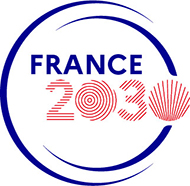Digital Inequalities Symposium
Digital Inequalities Symposium

 Image Shutter z (via Shutterstock)
Image Shutter z (via Shutterstock)
Digital Inequalities Symposium for Early-Career Researchers
This event is organized by Sciences Po's Center for Research on social InequalitieS in partnership with TIERED
Venue: Sciences Po, 13 rue de l'Université, Salle du Conseil (5th floor)
Date: Thursday, December 19th, 2024
Registration is required. Thank you
The rapid proliferation of digital technologies - from computers, the internet and portable devices to social media, streaming devices and virtual reality, along with artificial intelligence (AI), automation, and algorithms - has transformed modern societies. Social inequalities both shape and are shaped by these digital tools, raising questions about the persistence, reproduction, and exacerbation of social inequalities. At the same time, an explosion of digital data and methods of analysis, from digital ethnographies to computational methods have
broadened our understanding of how society operates in the digital era. Several lines of inequality research indicate key factors in the relationship between digital technologies and society: access to digital tools, information inequalities in the use of digital technologies, Algorithmic bias and discrimination, different returns to the use of digital tools, the power of Big Tech, and policy implications.
In the context of the TIERED project, CRIS aims to strengthen its expertise on the topic of digital inequalities. We invite early career researchers (PhD students and post-docs from a variety of disciplines) working with a variety of theoretical perspectives and research methods to participate to the symposium, which provides a platform to present groundbreaking research, engage in discussions and collaborate with other researchers.
09:00 - 09:30 Coffee and Pastries
9:30 - 11:40 Welcome and introduction
- Session 1: Gender Inequality in the Digital World
Casey Breen (University of Oxford, Leverhulme Centre for Demographic Science)
Mapping subnational gender gaps in internet and mobile adoption using social media data
Xinyi Zhao (Adaptive Rationality Center, Max Planck Institute for Human Development)
Gender differences in online visibility of early-career researchers: Are men more likely to gain mentions on Twitter and benefit more?
Isabelle Langrock (CRIS, Sciences Po)
Archive of Our Own: A Model for Gender Equity in Open-Source Software
Emmanuel Olamijuwon (University of St Andrews)
Who really wants to be a millionaire? How digital platforms reproduce, reflect and reinforce gender norms
11:40 - 12:00 Coffee Break
12:00 - 13:00
- Session 2: Inequalities around Digital Skills Development and Schools
Manuel Bruns (Technical University of Munich)
Reading Skills and Digital Inequalities: Lessons from the ‘BesserLesen’ AI-Based Tool in Bavarian Primary Schools
Leo Röhlke (University of Bern, ICER - Interfaculty Centre for Educational Research)
National contexts as moderators of inequality in adolescents’ ICT use: The role of material access, educational returns, and school ICT integration
13:00 - 14:00 Lunch Break (cafeteria, ground floor 13U)
14:00 - 15:30
- Session 3: Digital Inequalities and Violence
Clara Le Gallic-Ach (CRIS, Presage, Sciences Po)
Digital inequalities and gender-based violence: an analysis of testimonies on twitter in the era of #Metoo in France
Prashant Poddar (University of Oxford)
3G Internet, Intimate Partner Violence, and Women’s Empowerment: Evidence from Nigeria
Annina Claesson (Médialab, Sciences Po)
The cost of visibility: An Analysis of Online Violence as a Backlash Mechanism
15:30 - 15:45 Coffee Break
15:45 - 17:00
- Session 4: Inequalities between Groups in the On- and Offline Worlds & Concluding Remarks
Frederic Gerdon (Mannheim Centre for European Social Research - MZES)
Research Avenues for Studying Effects of Algorithmic Decision-Making Systems on Social Inequality
Alejandra Rodríguez-Sánchez (University of Potsdam)
Uncovering patterns of residential segregation: Food establishment data through the Google Maps lens
This project benefits from support from TIERED, which is funded by a French government aid managed by the National Research Agency under France 2030, bearing the reference ANR-22-EXES-0014.
Organizing committee: Carlo Barone, Emanuele Ferragina, Allison Rovny, Jen Schradie (CRIS, Sciences Po), Jean-Philippe Cointet (Médialab, Sciences Po).










